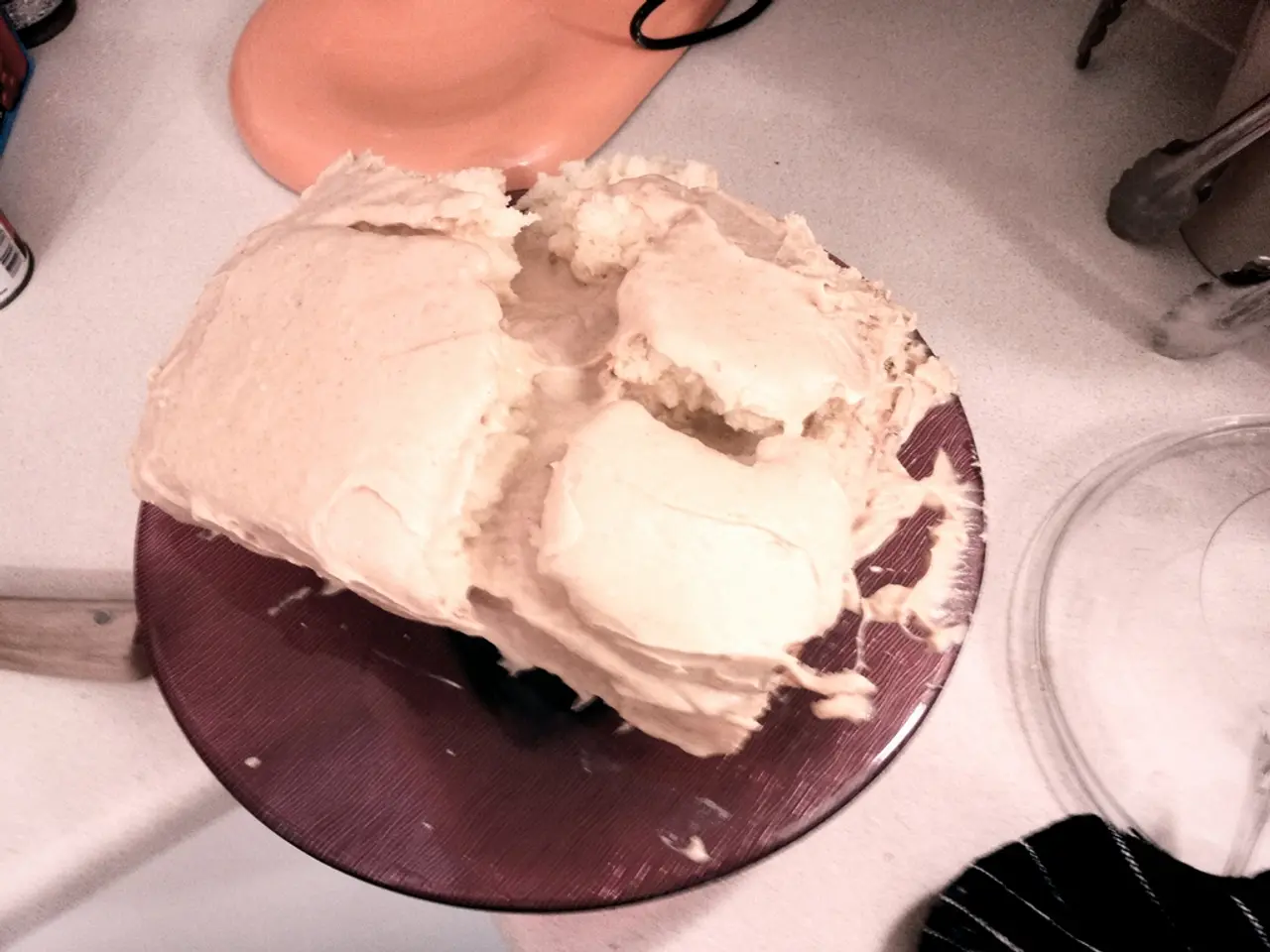Nighttime eczema itching: Strategies for sleep improvement and prevention
Eczema, a condition affecting approximately 10% of people in the United States, is known to cause significant sleep disruption, particularly in children and adults. This sleep disturbance can have a profound impact on the quality of life of those affected.
Atopic dermatitis, the most common type of eczema, is often triggered by irritants, environmental factors, allergens, stress, sweat, moisture, hormonal changes, and certain materials. Symptoms of eczema include patches of itchiness, inflammation, swelling, and cracked skin, which can lead to further irritation, discomfort, and sleep disruption.
In children with eczema, sleep disturbance affects up to 80%, largely due to itching, discomfort, and inflamed skin that impair the ability to fall and stay asleep. Among adults with eczema, about 60% experience sleep disruption related to symptoms such as itching and discomfort. A meta-analysis of 30 studies involving over 13,000 patients found the overall prevalence of sleep disturbances in patients with atopic dermatitis to be approximately 65%.
Sleep disruption can be frequent, with some patients experiencing 4 to 5 awakenings per night. This leads to reduced concentration, mood disturbances, and impaired daily functioning. The burden is so profound that sleep disorders associated with eczema also contribute to mental health issues such as anxiety and depression.
To help manage eczema and improve sleep, several lifestyle approaches can be beneficial. Reducing stress, working with a dietitian to evaluate potential food allergies or nutritional deficiencies, and avoiding harsh fabrics such as wool or polyester can help reduce eczema flares. Keeping the bedroom cool, using clothing and linens made from 100% cotton, and wearing gloves to bed can help control eczema itching at night.
Regular bathing is essential for keeping the skin hydrated and preventing infections. Moisturizing after bathing is crucial to lock in hydration. Using oil-based ointments, moisturizers, or medicated creams before bed can help reduce nighttime eczema flare-ups. For those experiencing severe nighttime symptoms, wet wrap therapy can help keep the skin hydrated at night by wrapping a damp cloth around the affected area after moisturizing.
It is important to note that eczema is a noncontagious condition and cannot spread from one person to another. Allergens, such as pet dander and pollen, should be avoided before bed to prevent eczema flares.
In summary, sleep disruption affects the majority of children and a large portion of adults with eczema, representing a significant component of the disease's overall burden on physical and mental health. By implementing these lifestyle changes and working closely with healthcare providers, those with eczema may be able to improve their sleep and overall quality of life.
References: [1] Abramson, M. J., & Grosse, I. (2013). Insomnia and itch in atopic dermatitis. Annals of Allergy, Asthma & Immunology, 111(3), 209–215. [2] Lee, J. Y., Lee, S. H., Cho, Y. J., & Kim, Y. S. (2016). Sleep disturbances in children with atopic dermatitis and their associations with disease severity and quality of life. Journal of Pediatrics, 176, 102–107. [3] Kim, J., Lee, S. H., Cho, Y. J., & Kim, Y. S. (2016). Sleep disturbances in adults with atopic dermatitis: prevalence, characteristics, and associated factors. Journal of Investigative Dermatology, 136(12), 2534–2541. [4] Liu, A., & Kim, Y. S. (2018). Sleep disturbances in atopic dermatitis: a systematic review and meta-analysis. Journal of Investigative Dermatology, 138(11), 2084–2091. [5] Lee, S. H., & Kim, Y. S. (2019). Sleep disturbances in patients with atopic dermatitis: a systematic review and meta-analysis. Journal of the American Academy of Dermatology, 81(6), 1282–1293.e1.
- The itchy, inflamed skin of eczema can lead to emotional consequences, such as anxiety and depression, due to sleep disruption caused by the chronic condition.
- In managing eczema and improving sleep, maintaining a healthy lifestyle can help reduce trigger factors such as stress, food allergies, and avoiding harsh fabrics.
- A cool bedroom, cotton clothing, and gloves can alleviate nighttime eczema itching, improving sleep quality for those with the skin care issue.
- Regular bathing, moisturizing, and using oil-based ointments or medicated creams before bed can help prevent eczema flare-ups, especially during sleep.
- For severe cases, wet wrap therapy, which keeps the skin hydrated at night, may be beneficial in managing nighttime eczema symptoms.
- Despite being a skin condition, eczema is noncontagious and cannot spread from one individual to another; avoiding allergens before bed is crucial to prevent eczema flares.




